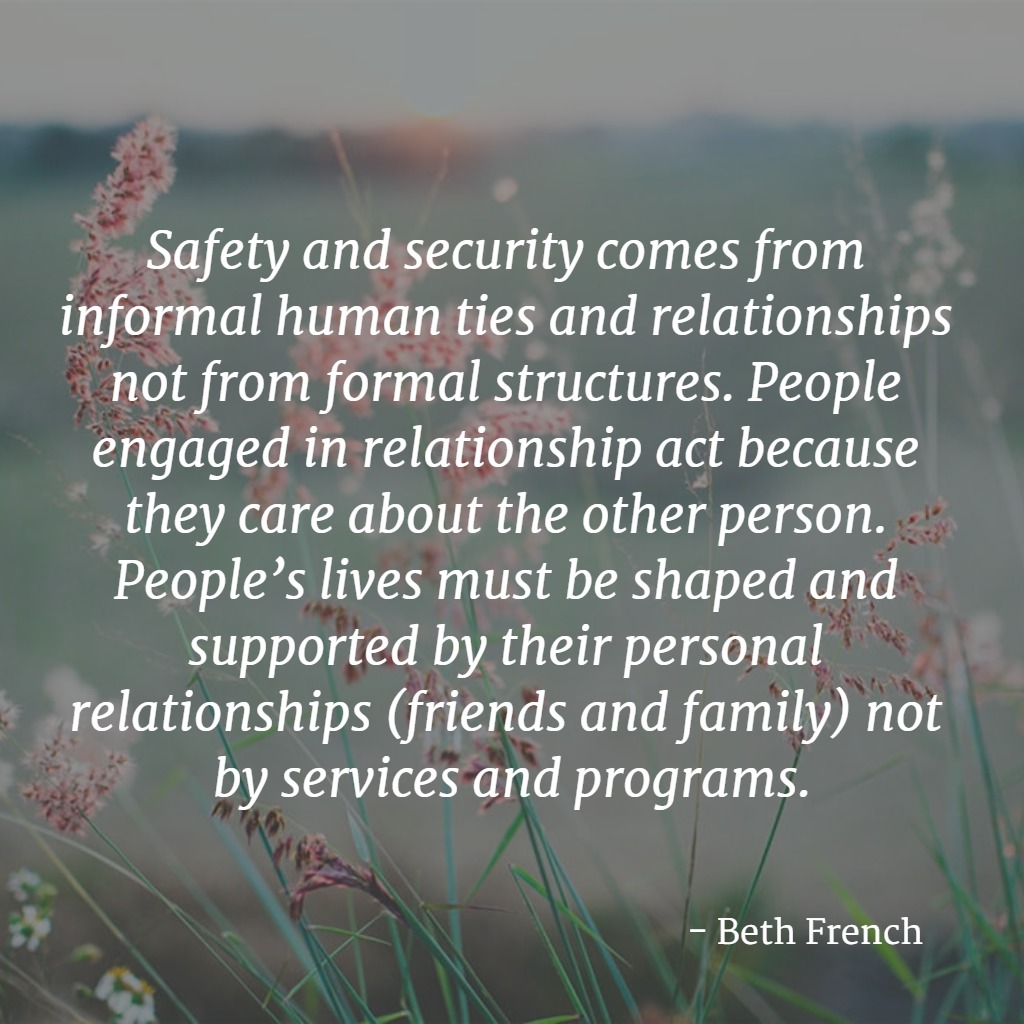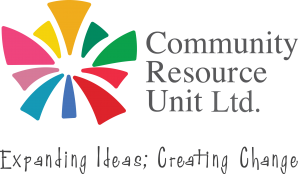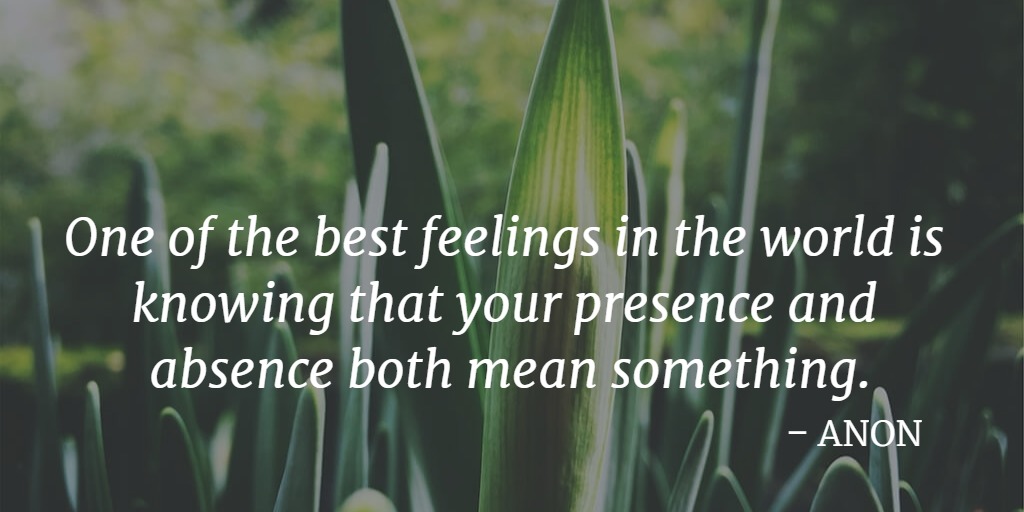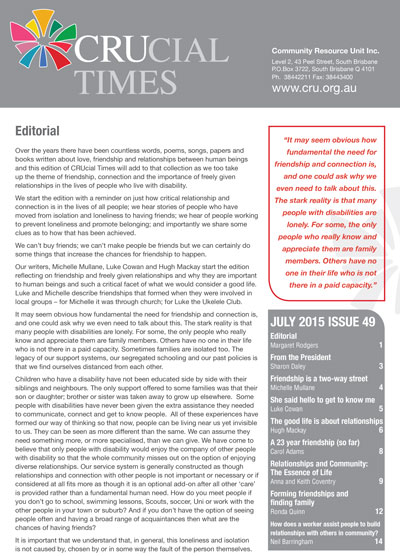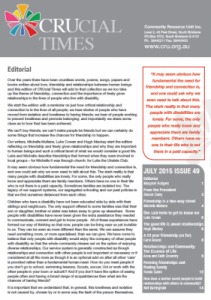Introduction
When asked to name the good things in life, most people include family and friends on their list. They say relationships give their life added meaning; they appreciate the intimacy, joy and safety and know that this comes with the frustration and complexity of real human interaction.
Too often in the human service system, rather than being prioritised as a fundamental human need, relationships and connection with other people can be considered a good thing to do after all other ‘care’ is provided.
The legacy of our support systems, our segregated schooling and our past policies is that we find ourselves distanced from each other. Children who have a disability have not been educated side by side with their siblings and neighbours. The only support offered to some families was that their son or daughter; brother or sister was taken away to grow up elsewhere. Some people with disabilities have never been given the extra assistance they needed to communicate, connect and get to know people.
All of these experiences have formed our way of thinking so that now, people can be living near us yet invisible to us. They can be seen as more different than the same. We can assume they need something more or more specialised than we can give. We have come to believe that only people with disability would enjoy the company of other people with disability so that the whole community misses out on the option of enjoying diverse relationships.
Whilst it is important to recognise and respect the history, it is equally important we acknowledge that this is not the way it has to be. For relationships to be properly recognised as the fundamental human need they are, a change in thinking is required. This re-prioritising can be started now; one person at a time and we don’t have to wait for changes in funding or policy; we don’t have to wait for government to do something or til it can change for everyone. If we are waiting until the whole ‘community’ suddenly decides to welcome people with disability then we will continue to be part of committing people to lives of isolation and loneliness.
We could start by deciding to be brave and work out what one person could say ‘yes’ to. If we consider how many years of experience in friendship and relationship we have and put that experience to good use then we know all we need to know.
In this page we will…
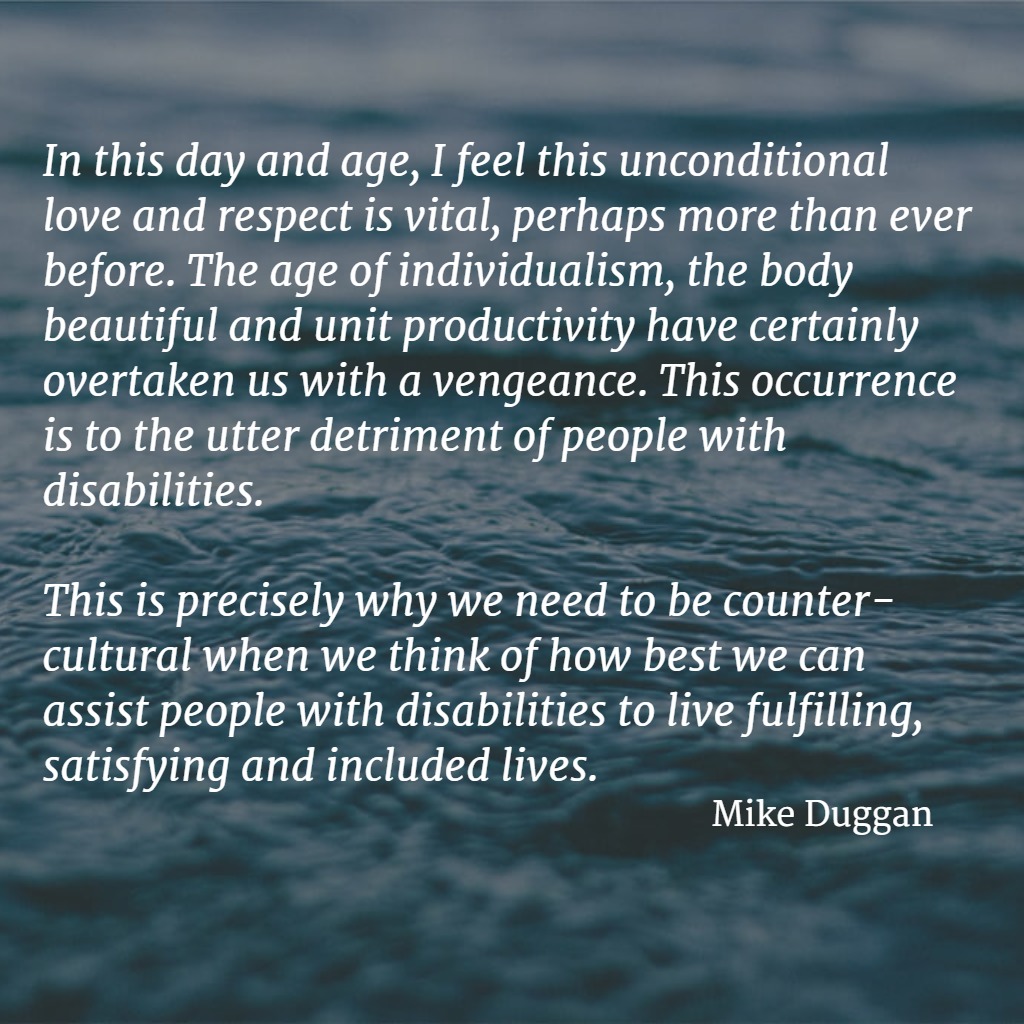
LOVE: SOMETHING MONEY CAN’T BUY
Funded supports are vitally important to improving the lives of many people with disability. However it is important to remember money alone will not guarantee access to the good things in life and it will not, on its own, help people to take their place within their communities. Money can never buy the commitment and love of family and friends and the satisfaction and safeguards that come from belonging in community.
Friendship – A way to more Ethical Communities
Jayne Clapton
![]() Friendship embraces care, affection, intimacy, closeness, companionship and trust. Friendship is intentional and voluntary; it is a relationship of choice…the significance of close friendships is not only that they are at the heart of where we are in the world, but indeed they continually impact upon the type of world we live in.
Friendship embraces care, affection, intimacy, closeness, companionship and trust. Friendship is intentional and voluntary; it is a relationship of choice…the significance of close friendships is not only that they are at the heart of where we are in the world, but indeed they continually impact upon the type of world we live in.
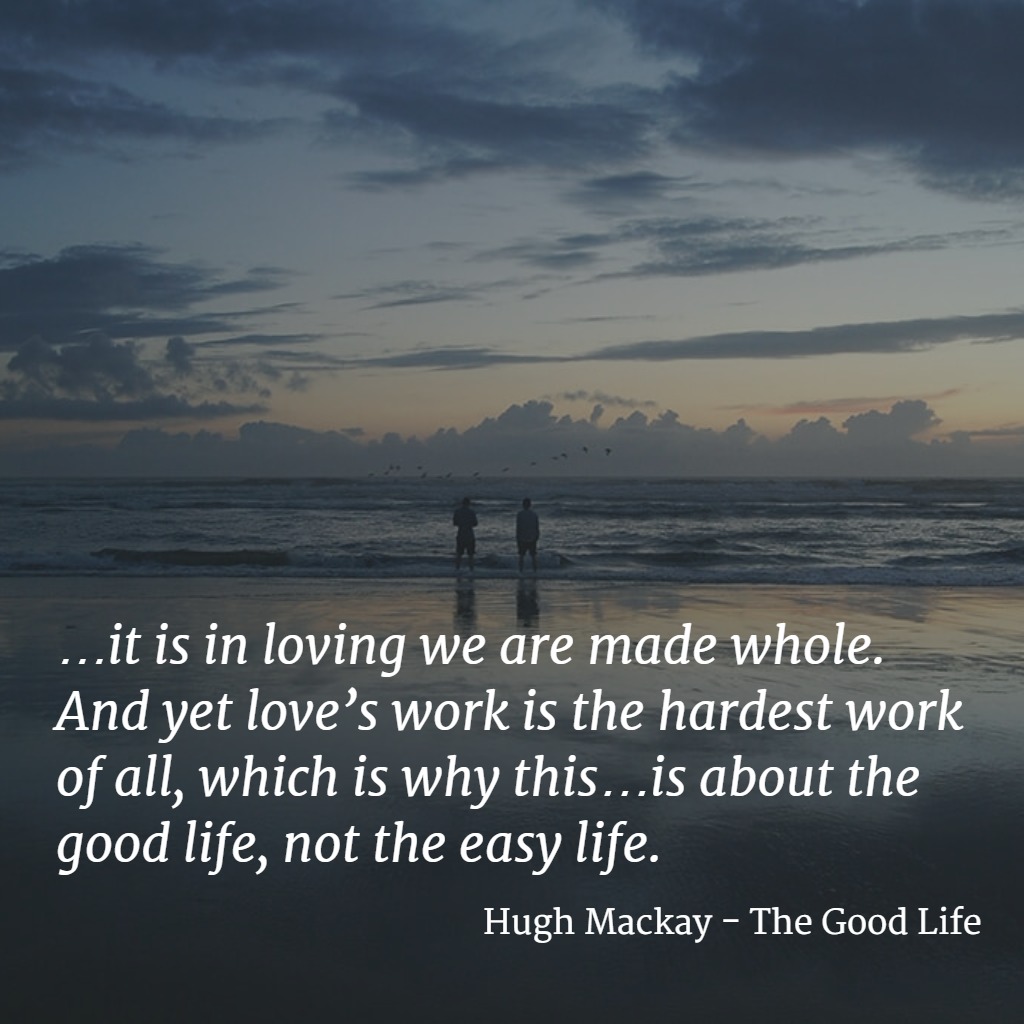
The Good Life is about relationships
Hugh Mackay
![]()
Love, given or received, is about our engagement with others. The answers to those two questions lead us logically, inescapably, to…If love is the ultimate source of goodness in our lives, it follows that the good life is primarily about others. What else could it be about?
THE ROLE AND AUTHORITY OF FAMILIES
Even though the definition of family may change over time, the role of the family continues to be seen as a critical piece of our general social structure. Families hold a unique position in our lives and for most of us, no one knows us better, has known us for longer nor care about us more than our families. Without wanting to romanticise the notion, the family is recognised as a place for giving and receiving support across the generations.
Families do have a natural authority afforded to them by society’s systems and services – it is an authority that is not often made explicit or offered by the system but is an authority that continues to be helpful to remember and draw upon. Every political party claims that families are the bedrock of our society and strengthening families is part of key government policy.
When formal systems overstep their role, this can threaten and diminish the role and authority of families. This is why it is important for families and services alike to be mindful of the importance of family and to recognise their natural authority.
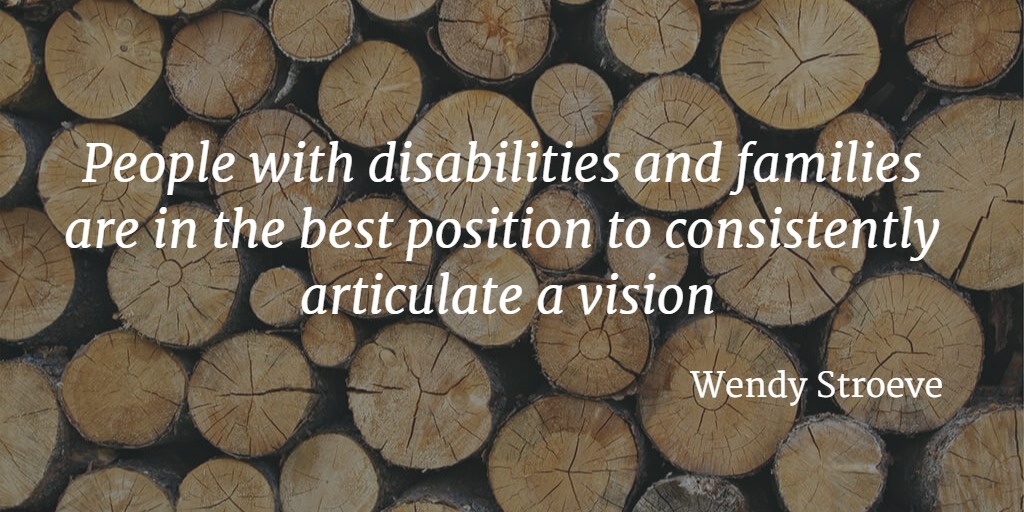
The Natural Authority of Families
Michael Kendrick
![]() It can sometimes help to remember that families have a natural authority of their own which can go a long way to reducing this imbalance of power and authority. In order for this to happen, however, families need to appreciate this natural authority and be willing to act on it.
It can sometimes help to remember that families have a natural authority of their own which can go a long way to reducing this imbalance of power and authority. In order for this to happen, however, families need to appreciate this natural authority and be willing to act on it.
How a Father Sees Life for His Daughter
Jeff Strully
![]() We did everything that people told us to do: early intervention, preschool; we bought the right toys; we worked day in and day out. One day I woke up to discover something. That my daughter wasn’t broken. And I didn’t have to fix her. Perhaps what we need to do is to change the way we talk and think.
We did everything that people told us to do: early intervention, preschool; we bought the right toys; we worked day in and day out. One day I woke up to discover something. That my daughter wasn’t broken. And I didn’t have to fix her. Perhaps what we need to do is to change the way we talk and think.

Brothers and Sisters
FRIENDSHIPS
Creating Opportunities for Connection
We can’t buy friends and we can’t make people be friends, but we can certainly do some things that increase the chances for the spark of friendship to develop. It may seem obvious how fundamental the need for friendship and connection is, and one could ask why we even need to talk about this. The stark reality is that many people with disabilities are lonely. For some, the only people who really know and appreciate them are family members. Others have no one in their life that is not there in a paid capacity.
It is important that we understand that, in general, this loneliness and isolation is not caused by, chosen by or in some way the fault of the person themselves. A person doesn’t have to be fixed or improved in some way to have friends but interestingly having friends can help us all to be better people. Being liked and appreciated brings out the best in us all. Having an interesting life gives us more things to talk about and being listened to gives us confidence to speak more.
Nobody starts life knowing how to be a friend; getting the hang of relationships takes time but we learn by doing; by our mistakes as much as our successes. People with disabilities don’t need some sanitised, romanticised form of friendship and relationship. With practice they will be as loyal, thoughtful, self-centred and annoying as every other person who enters into a relationship. They will let people down and be let down and they will be comforted and cherished too.
The good news is that there are many ways we can create opportunities that can help friendships to form. Some of them are so obvious that we take them for granted and others require a change in thinking or a refocussing of effort. The role of supporters is crucial in this.
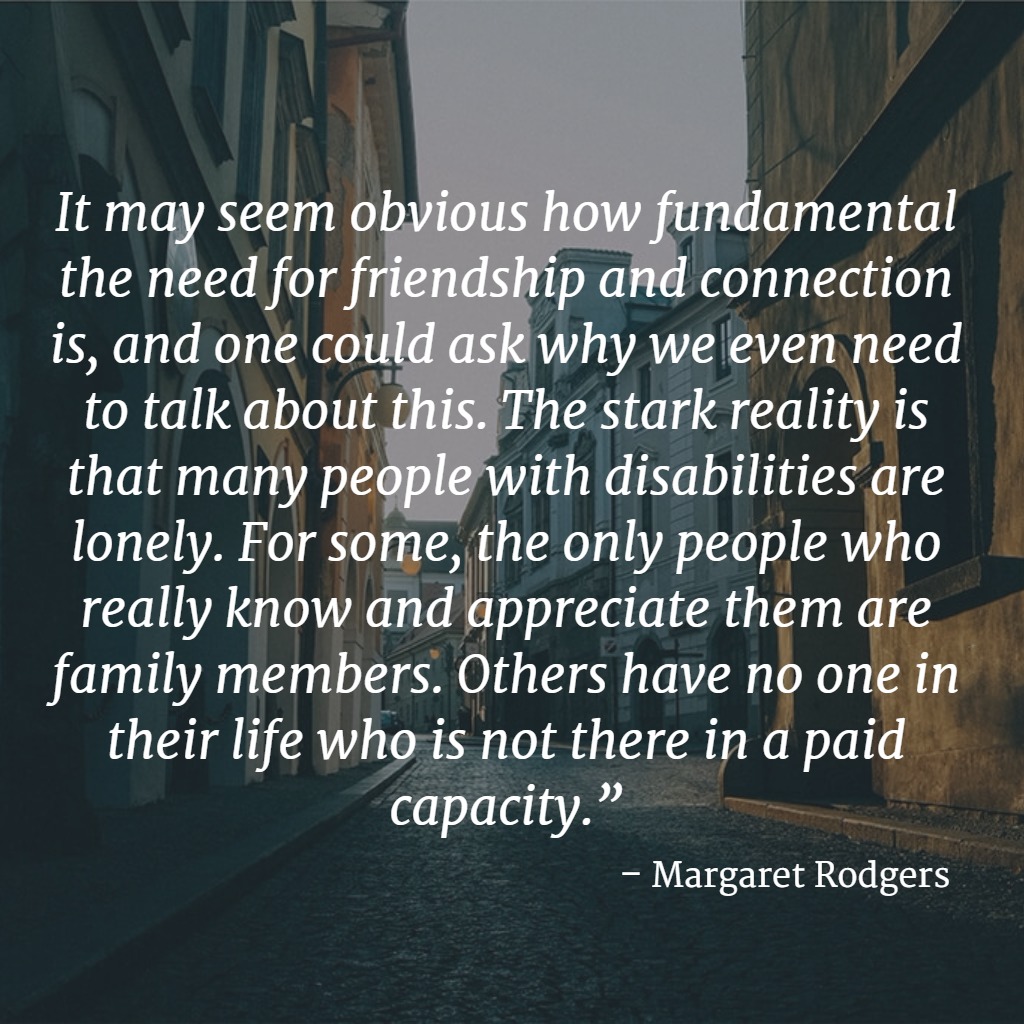
Reflections on Friendship
David and Faye Wetherow
![]() …We shared time, space, conversation, and most importantly, we shared a common interest. This is even more powerful when the interest is passionate. When we share a passionate interest, we begin to feel that we share an identity… Passionate interests don’t have to be big deals, but it helps if they’re about more than ‘consuming’ something. Making music brings people closer together than listening to music. Listening to music (especially if we keep going back and the place is small enough) brings people closer than merely buying (or these days, downloading) music.
…We shared time, space, conversation, and most importantly, we shared a common interest. This is even more powerful when the interest is passionate. When we share a passionate interest, we begin to feel that we share an identity… Passionate interests don’t have to be big deals, but it helps if they’re about more than ‘consuming’ something. Making music brings people closer together than listening to music. Listening to music (especially if we keep going back and the place is small enough) brings people closer than merely buying (or these days, downloading) music.
Further Reading
Useful Websites
Belonging Matters
Based in Melbourne, Belonging Matters promotes values that help people with disability live full lives in their community.Their bi-annual conference is widely visited from around Australia and internationally. In this page they share videos taken at their conferences and interviews with families and people with disability discussing topics such as; planning, relationships, community, home and services.
Building a Context for Relationship
Assisting Communities to be Welcoming
Neil Barringham
![]() Working one-by-one, each of us can assist a community to have a spirit of welcoming. Any one of us can be community builders, community assisters, or community connectors… While we cannot manufacture inclusive communities, we can search for those spaces, places and people where inclusion and connection might occur.
Working one-by-one, each of us can assist a community to have a spirit of welcoming. Any one of us can be community builders, community assisters, or community connectors… While we cannot manufacture inclusive communities, we can search for those spaces, places and people where inclusion and connection might occur.
Personal Relationships Between People With and Without Disabilities
Zana Marie Lutfiyya
![]() People can establish friendships with each other, but it is not possible to create friendships between others. However, it is possible to create opportunities for people with and without disabilities to meet and spend time with each other in ways that encourage friendships to take root and flourish. Families and service providers can do different things to make such opportunities available. Personal relationships between people with and without disability.
People can establish friendships with each other, but it is not possible to create friendships between others. However, it is possible to create opportunities for people with and without disabilities to meet and spend time with each other in ways that encourage friendships to take root and flourish. Families and service providers can do different things to make such opportunities available. Personal relationships between people with and without disability.
The Art of Asking and Good Introductions
The Art of Asking
Ric Thompson
![]() The art of asking is therefore not just important, but critical in the building of inclusive communities. The seeking of others to be involved in the lives of individuals with a disability … requires a deliberate and conscious approach to achieve valued and relevant outcomes.
The art of asking is therefore not just important, but critical in the building of inclusive communities. The seeking of others to be involved in the lives of individuals with a disability … requires a deliberate and conscious approach to achieve valued and relevant outcomes.
DEVELOPING NETWORKS OF SUPPORT
The Importance of Invitation and Information
As supporters, be that paid or unpaid, we often articulate the benefits to our lives of knowing people who live with disability, but then baulk at the notion of offering that opportunity to others. We have been put off by the stares and blunt questions and have been so concerned about the rejection or risk of rejection that we have not been brave enough to ask. We tell ourselves that people don’t care; are too busy; will be cruel – and yet there is lots of evidence to the contrary. On this website there are examples of people who were asked and who said yes and know their life is richer for the experience.
Supporters have an important role and responsibility to ask and to think very carefully about how to ask, to maximise the chance of citizens and ‘potential friends’ saying yes. It is important to understand that it is not the role of the supporter to fill the gap and be the friend but to spread the word of how much this person has to offer.
If as friends, family and supporters of people with disabilities we believe that friendship, relationship and connection are the highest priority then we can adjust how we do things to match that priority. We can take up offers and find ways that people can help. We can concentrate not only on connecting with new people but ensuring that we assist people to maintain the friendships and relationships they have and not unwittingly disconnect.
We can resource and reassure ‘potential friends’ who don’t know enough or don’t feel confident rather than criticise them for their fledgling efforts at connection. We can learn from others about ways they have put semi-formal structures in place to harness the goodwill of family and friends, for example through Circles of Support and Micro boards.
Sowing the Seeds for a Good Life
Ingrid Michalowsky
![]() I use to find it hard to ask for help, because I thought that I was asking people to do me a favour. Now I see that it is me who is doing them the favour. I am asking them into my son’s life and into ours. It is not perfect, and it is often a little messy, but it is filled with real life, with love, and with a sense of achievement and optimism.
I use to find it hard to ask for help, because I thought that I was asking people to do me a favour. Now I see that it is me who is doing them the favour. I am asking them into my son’s life and into ours. It is not perfect, and it is often a little messy, but it is filled with real life, with love, and with a sense of achievement and optimism.
Support Circles
National Resource Centre for Circles of Support and Microboards (NRCCOSAM)
This site contains tools to help you locate and connect with a COSAM organisation near you, read interesting stories about how circles and microboards work, download useful information and watch informative videos about COSAM’s.
The content and tools will help to decide if you would like to establish your own circle or microboard, and what strategies will help in developing and sustaining it over time. These resources include:
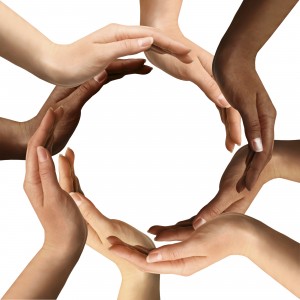
What Does it Really Take to Live my Life to the Max
Jacquie Mills
A microboard is formed when a small gr![]() oup of friends and family gather around a single individual to form an incorporated association for the benefit of that individual.
oup of friends and family gather around a single individual to form an incorporated association for the benefit of that individual.
Depending on a person’s particular needs, a microboard’s role can include assisting with coordinating support services, finding and keeping employment, meeting a person’s social needs and managing living arrangements and funding.
Further Reading
Relationships and community: The essence of life.
Anna and Keith Coventry
Steppin' Out: A Journey to independence
Kate and Glenys Alcorn and Glenys Bull
HOW RELATIONSHIPS KEEP PEOPLE SAFE
When we are known in our community and surrounded by enduring relationships with committed people then we are more likely to be emotionally and physically safe. People who know us and love us have a deeper understanding of our needs and they are more committed to our long term welfare.
Our instinct may be to shield or protect vulnerable people from the harsh realities of community; to think that keeping them close to home is the safest thing we can do. However there is another point of view that can seem almost counter intuitive. This says that people are safest when they are known and visible; not when they are behind closed doors.
If we believe that it is people who keep people safe then it follows that the more people they know who are potential ‘safeguards’ the safer they will be. We don’t generally set out to make friends or stay connected without families just so that we are safe. However an important by-product of having family and friends is that it becomes our safeguard.
These relationships can be paid and unpaid, however it is the network and variety of these relationships that are key. It is through day to day interactions – some big and some small – that not only help connect us within our community, but also act as safeguards for our very wellbeing. They stop small problems become big problems.
A Life Filled with ‘almost friends’
Jeff McNair
Many people who experience disability ![]() have lives filled with people who are nice, perhaps because they are paid to be caretakers, or social workers, or teachers or some other role. They are nice and perhaps they are even friendly. But they are not friends.
have lives filled with people who are nice, perhaps because they are paid to be caretakers, or social workers, or teachers or some other role. They are nice and perhaps they are even friendly. But they are not friends.
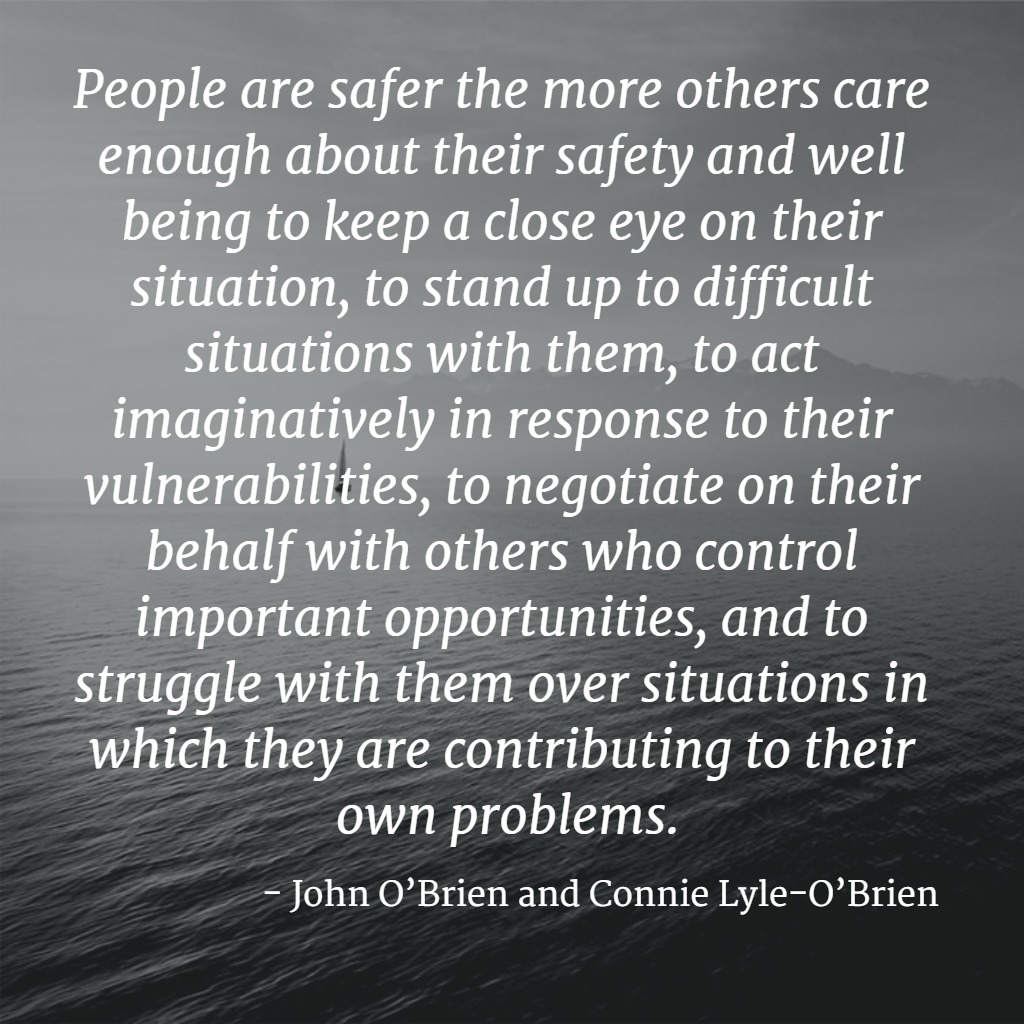
Forming Relationships and Finding Family
Ronda Quinn
![]() Citizen advocacy could involve representing a person’s best interest in making formal appeals, for example, to a medical specialist, a housing department or a service provider… An independent, unpaid advocate who has no divided loyalty or conflict of interest can act on their behalf during a crisis when uninformed decisions are being made that may have a detrimental effect on the person’s life.
Citizen advocacy could involve representing a person’s best interest in making formal appeals, for example, to a medical specialist, a housing department or a service provider… An independent, unpaid advocate who has no divided loyalty or conflict of interest can act on their behalf during a crisis when uninformed decisions are being made that may have a detrimental effect on the person’s life.
Friendship is a Two Way Street
Michelle Mullane
![]() I wouldn’t know what to do if I didn’t have the support, the friendships, the relationships, my friends and family. I don’t think I’d be able to get up and do what I do every day… you know you’ve got someone there in times of need, or if you just need someone to talk to.
I wouldn’t know what to do if I didn’t have the support, the friendships, the relationships, my friends and family. I don’t think I’d be able to get up and do what I do every day… you know you’ve got someone there in times of need, or if you just need someone to talk to.
